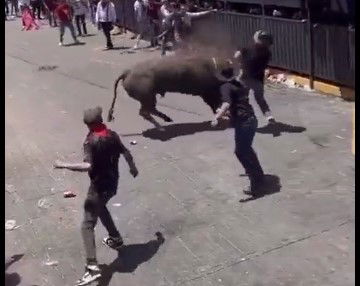

Spain, a nation with more than 29 million pets, has taken significant steps to address the issues of animal abuse, pet abandonment and mistreatment. The recently enacted Animal Welfare Law, which came into effect last Friday, aims to curb these problems.
Watch What’s Trending Now!
Pet abandonment and insufficient identification have long plagued Spain, with approximately 300,000 animals abandoned each year. These numbers are according to the Ministry of Social Rights. To tackle this issue, Spanish lawmakers passed the Animal Welfare Law, a comprehensive piece of legislation.
ADVERTISEMENT
Article continues below this ad
A new animal law in action after decades of animal abuse
This law, approved in March, introduces several key provisions. It prohibits the sale of dogs, cats, and ferrets in pet shops, bans the use of electronic or punitive dog collars. It mandates the spaying of cats unless they have a breeding permit. However, working animals like hunting dogs, often used in pursuits such as bullfighting, are excluded from these regulations, sparking some controversy.
The law has received mixed reactions. Podemos, a government coalition partner, accused the ruling Socialists. This accusation is about catering to the powerful hunting lobby by excluding hunting dogs from the law. Even though Podemos was concerned that hunting led to dog abandonment, they still backed the bill because they didn’t want the law to be scrapped completely.
ADVERTISEMENT
Article continues below this ad
Experts like Maria Luisa Fernandez, the director of small animals at the Spanish Veterinary Association have hailed the law as one of the most ambitious in Europe. Fernandez said the law seemed hasty. It had some unresolved issues, especially concerning euthanasia. This may restrict vets and owners from choosing euthanasia if palliative care is an option.
The new law requires dog owners to finish a free online training course. However it will not be obligatory until a new government is established. Additionally, liability insurance for dog owners, covering damages caused by their pets, will be mandatory. However this doesn’t extend to cat owners.
The law also addresses the transportation of pets, requiring shipping companies, airlines, and trains to facilitate pet access. It is possible after owners comply with security measures and ensure their pets’ correct behavior.
The crucial additions
Importantly, the law stipulates that one cannot leave pets unattended for more than three consecutive days, with a reduced limit of 24 hours for dogs.
Furthermore, the law places restrictions on leaving dogs or cats on terraces or patios. While it’s not outright prohibited, the law has set time limits. Leaving animals alone inside closed vehicles or exposed to extreme thermal conditions that endanger their lives is also strictly prohibited.
To control pet breeding, the law mandates responsible breeding by registered individuals listed in the Register of Breeders of Companion Animals. Measures to prevent uncontrolled reproduction, such as sterilization, will be enforced, except for registered breeding animals.
ADVERTISEMENT
Article continues below this ad
Although this law tackles many pet welfare concerns, there are no particular guidelines or laws for bulls in Spain. This comes as a huge blow to the protester against bull fighting sport. However, some changes are a step towards improvement and maybe soon more issues will be recognized and resolved.
Watch this Story: 7 time bull riding world champ triumphs for home team weeks after life altering injury
ADVERTISEMENT
ADVERTISEMENT
ADVERTISEMENT
ADVERTISEMENT


